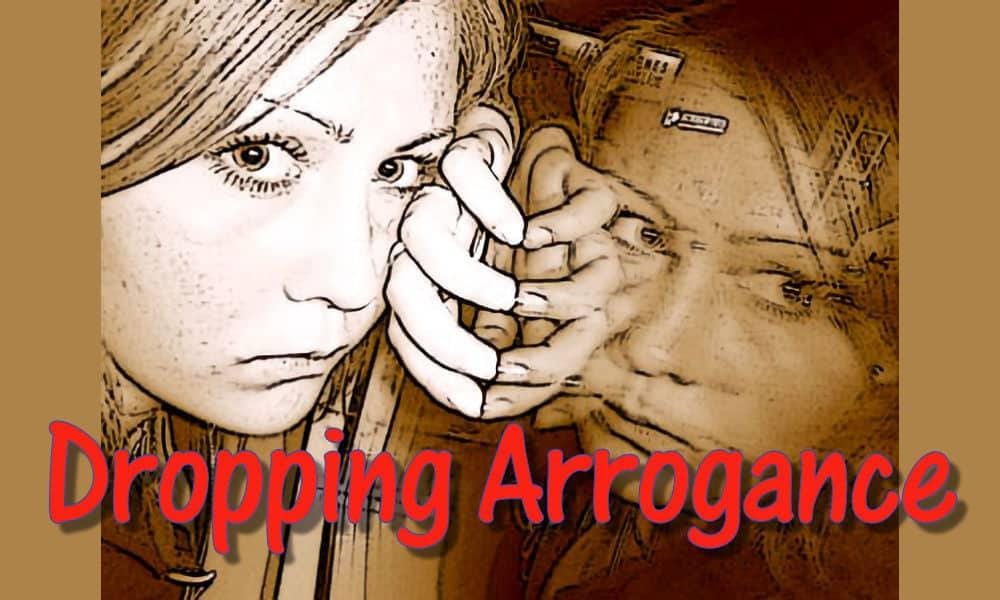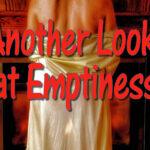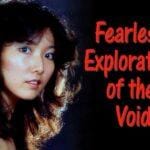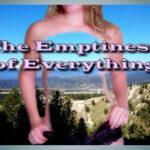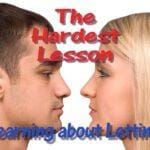Today, we’re using a familiar Zen story to help us to see ways for dropping arrogance
This topic is described in my book, Half Asleep in the Buddha Hall. You can read more about it here

Want to learn more about living a full and meaningful life?
Want to have the best relationship ever?
Check out my books
A Few Ways to Get Over Yourself
This is a Zen story about Today, we’re using a familiar Zen story about dropping arrogance that most people know:
On the surface, this is a simple story. The scholar thinks he knows something, and is therefore unteachable. Yet, this is entirely too simple an explanation.
A scholar went to visit a Zen Teacher. The Zen Teacher offered the scholar some tea. While it was brewing the scholar began to expound on all that he knew, what he had done, and how brilliant he was.
The Zen Teacher made tea.
The scholar continued blathering on. The Zen Teacher handed him a teacup and began pouring. He poured and he poured, eventually filling the cup, then overflowing it.
The scholar yelped, “It is overfull. No more will go in!”
“Like this cup,” the Zen Teacher said, “you are full of your own opinions and speculations. How can I show you Zen unless you first empty your cup?”
Speaking of dropping arrogance, I saw the opposite enacted at the Buffalo Zen Center. There were a couple of guys there, in their 20s, who said that they’d studied Zen and Buddhism for a while and had not been able to find peace and a calm center.
They thought that some zazen (sitting meditation) might help.
They then spent better than an hour telling everyone all the things they’d done in Japan, Korea, etc., about all they’d studied, about all they knew.
Except they had started the conversation by saying that nothing they had learned actually worked!
I used to see this in therapy all the time — people told me what was wrong — what wasn’t working, what wasn’t happening in their relationship, and then they’d blame their partner! Then they’d try to persuade me to teach them how to make their partner behave.
The thought that they just might be clueless eluded them.
My job is never to persuade someone that I am right and they are wrong. My job is to help them to notice how full of themselves, and how full of their arrogant assumptions, they are.
My job, if you will, is to hand them a pitchfork and point them to their internal manure pile.
In Buddhism in general and in Zen in particular, there is great emphasis on “emptiness.”
The Zen teacher in the above story is not suggesting that the scholar empty himself of his own judgments, understandings and thoughts — so that the Zen teacher can fill him up with his. That would be silly.
Most think this way, though. People endlessly seek the right answer, the correct answer, the final answer. It’s as if they think that one size fits all. Western thinking and education promotes this idea.
Uncertainty, for most, is uncomfortable.
Our problem is exactly the one faced by the scholar. He knew a lot. He had filled his head with learning. So, in keeping with what he knew, he showed up on the Zen teacher’s doorstep, looking both to show off, and to cram in more learning.
His learning had gotten him nowhere in terms of his personal life satisfaction and focus, so he decided to do more of what had never worked.
Now, this is not a condemnation of learning. I’ve got a couple of Masters Degrees myself, and I consider myself to be pretty smart.
What I do know is that all of my intelligence has never helped me understand myself, or others. What it has done is given me the ability to argue, fight, and try to prove others wrong.
A load of intelligence is a dangerous thing.
Emptying oneself, dropping arrogance… is scary. I remember my therapist telling me to “Spend 6 months not knowing.” I really freaked out over that one. I wasn’t sure how to approach life in a state of “not knowing.”
What I’ve come to understand is that, even in “not knowing,” a part of me does know. I know what’s up for most people, and I know what’s up for me, most of the time, and with fair accuracy.
What I’ve realized is that knowing something doesn’t change anything.
What I mean is, I might have an insight about myself or another, and it might even be accurate. The other person, upon hearing it, might respond, “Yes! That’s exactly what’s up for me!”
Now, from an ego perspective, I might get quite full of myself and congratulate myself for my wisdom and insight. The problem is this.
Knowing what I know, and stating it, has no effect on the actual situation.
My perceptions, insights and intelligence are only about me. When, for example, I write something about Darbella, I am not describing her. I am describing my version of the Darbella story I have in my head.
So, you learn about me, not about her.
Emptiness requires that I let go of clinging to my beliefs — or better, to the rightness of my beliefs.
Emptiness requires that I understand that how I see the world is how I see the world, and nothing more. Emptiness is letting go of the need to get others to agree with me. Emptiness is living in the ambiguity of knowing without knowing.
As soon as I think you need to change something so I can be happy, I am in deep trouble. Emptiness is this: I can let go of thinking that the world is supposed to co-operate in a “make me happy by agreeing with me” project.
I can let go of thinking I have all the answers, I can let go of valuing my judgments (instead, I can just have them), and be open to perceiving the situation at hand, while noticing my filters, prejudices, or pat solutions.
Tall order, dropping arrogance.
The Zen Teacher offered the scholar something precious — compassionate dialogue. In order to thus engage with someone, I have to be willing to suspend my ego-driven search for the right answer.
Most people waste their lives in search of this elusive ideal — the right partner, the right religion or belief (philosophical) system (actually the same thing…) the right political party, the right approach to self and others.
At the end of the day, all I can know is how I choose to act in this moment.
The Zen Teacher and the scholar met over tea, and in that moment, each had the opportunity to open up by letting go. Each had something of himself to share; each had something to hear and to learn of the other.0
The scholar blocked his side of the opportunity by presenting what he knew, as opposed to letting the Teacher see who he was, in that moment.
The Teacher did not blame, criticize or judge. He poured tea, and when asked, explained his actions, without rancour or judgment.
Letting go of the stories we hide behind is the work of a lifetime. Trust and patience are required. And openness.

